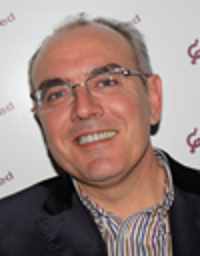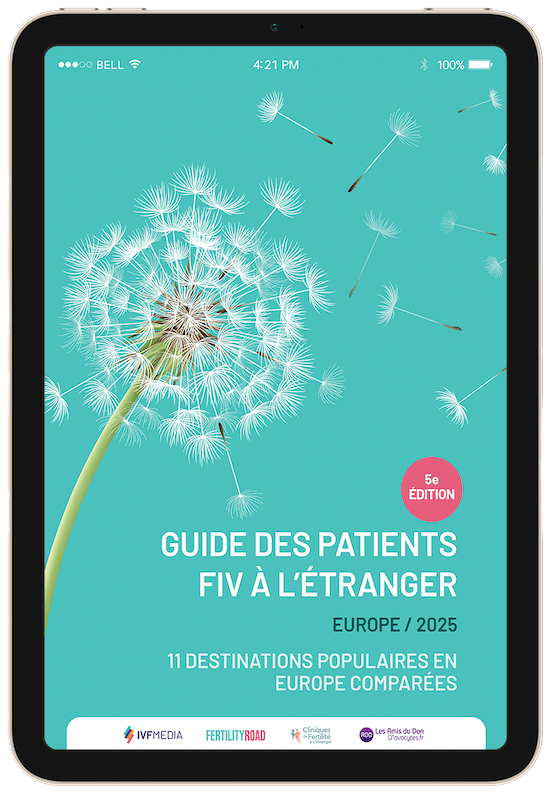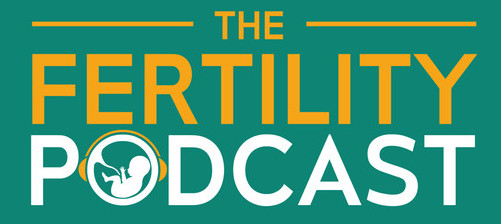Interview with the Director of Ginemed IVF Clinic in Spain

Dr Fernando Sanchez
We are pleased to include an interview with Dr Fernando Sánchez who is the co-founder and co-director of Ginemed IVF clinic in Spain. He has over 20 years’ experience in the field of obstetrics and gynaecology. He is the doctor responsible for the clinic´s Unit of Reproduction.
For people who are deciding which fertility clinic to choose in Spain, what can Ginemed offer them that is different to other clinics?
As we know, Spain is the world-leader in fertility treatments, in terms of techniques, treatments and results. Ginemed stands at the forefront of Spanish clinics, our results are comparable with other leading clinics and above the national average. All of this is possible thanks to having access to all of the techniques available, and our personalised treatment: each patient being treated and supported by the same doctor and the same coordinator throughout their cycle. In our egg donation programme we guarantee a minimum of 8 mature eggs, meaning that there are always enough embryos for 2 transfers, one in fresh and the second from frozen. Furthermore, while donors can legally be up to 35-years-old, all of our donors are under 30 with 85% of them being under 25. There is no waiting list. Finally, we are a centre of reference both nationally and internationally holding courses in vitrification, both within Spain and worldwide, and in the male infertility factor to give two examples. Our expertise in vitrification means that we have the same results with vitrified embryos /eggs as in the fresh cycles.
Do you have a waiting list for your egg donation program? Who is the program suitable for?
No, we do not have any waiting lists for our egg donation programme. It is recommended for women who have lower levels of fertility and those women over 42 years old or where there have been a number of unsuccessful cycles of IVF-ICSI. It is also an excellent alternative for those who might have a genetic condition and do not want to use PGD.
What type of support is available to people who attend Ginemed from abroad?
Our international coordinators are highly trained to deal with enquired and support those contacting the clinic from abroad, and I speak English and Italian. We offer free initial consultations with translators in Arabic, French, Italian, Chinese and English where necessary. The patients can also attend a free appointment with our psychologist. The international department is open from 9am to 9pm Monday to Friday and we have an emergency on-call number for weekends to ensure that any urgent enquiries are dealt with as soon as possible.
Do you have any specialisms in the clinic, for example, an andrologist who specialises in male infertility?
We pride ourselves at being at the forefront of scientific research and training, not only having weekly internal training programme to ensure all of our medical staff are up-to-date with the latest advances but also training externally and releasing scientific papers, such as the recently published research on the first fraction of the semen improving rates of conception, something that has been spread worldwide by the press. We specialise in cases of the male infertility factor and in implantation failures. We have a specialist in andrology and two geneticists in our laboratory, as well as doctors who specialise in endometriosis and PCOS.
How are sperm and egg donors screened at Ginemed?
The egg donors undergo a strict screening process before they are accepted onto our egg bank. First they meet with our donor coordinators who evaluate their motivation for donation and discuss their family and personal history. They undergo a physical examination to evaluate their fertility and a number of tests to ensure that they are fit and healthy and have no infectious or contagious diseases. They are all under 30-years-old and have a karyotype and have had a genetic study of over 200 recessive diseases carried out, meaning that we can genetically match the donor to the receptor´s male partner. All are negative for fragile X syndrome, cystic fibrosis, spinal muscular atrophy and Beta thalassemia. Finally, they have a psychological evaluation with our psychologist.
What information or tests do you need patients to have done before they travel to your clinic?
We ask for a number of tests from our patients so that we can ensure their health and to enable us to plan to most appropriate cycle for their individual case. We want the treatment to work first time round. We request the general blood test and serology that are required by Spanish law, then a gynaecological examination (ultrasound, cytology, breast examination or mammography depending on age) and where appropriate hormone tests. For older patients (> 45 years old) some further tests might be required including a general medical report saying that there are no contraindications for the pregnancy or from the gynaecologist who has agreed to monitor the pregnancy. From the male partner we ask for the serology tests, a full semen analysis and DNA fragmentation test, Karyotype, and where appropriate hormone tests.
Read more about Ginemed and find out more about IVF in Spain including information on IVF laws and regulations.



